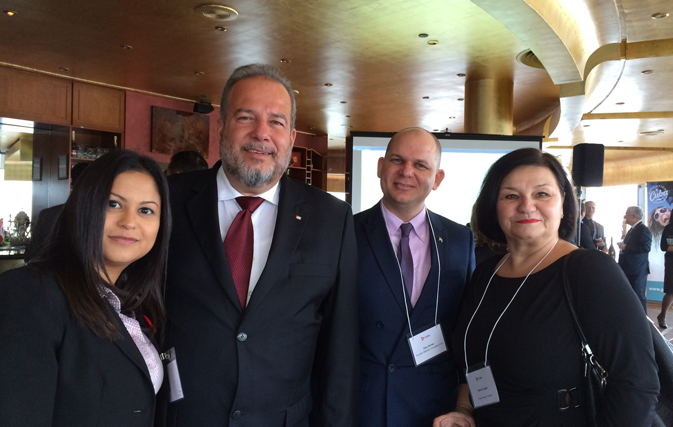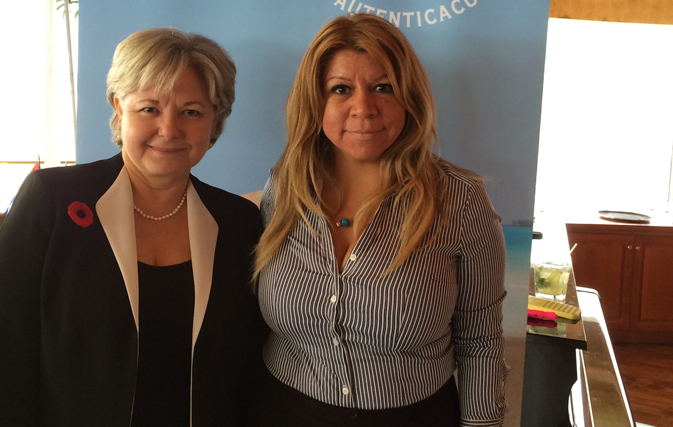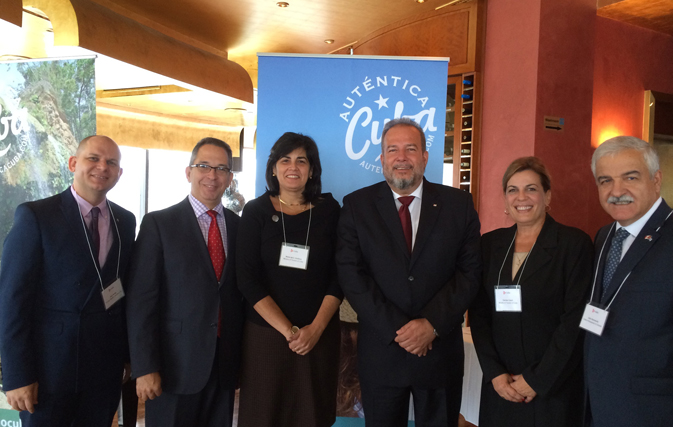TORONTO — Make no mistake, it’s not the Americans that are pushing Cuba’s visitor figures into the stratosphere. That will happen soon enough. For now, it’s the Canadians and Europeans who are travelling to Cuba in droves, no doubt fuelled in part by a desire to vacation on the island they know and love before the arrival of mass-market tourism from the U.S. sometime in the near future.
Year to date, the Canadian market is up 13.7%, with an anticipated 1,250,000 Canadian visitors by the end of 2015, said Cuba’s Minister of Tourism, Manual Marrero.
The European market, meanwhile, is growing 25 – 30%. “All records will be broken this year,” said Marrero at yesterday’s Cuba Tourism Office lunch event in Toronto. “Canada has been great this year,” he added. This despite the fact that Cuba’s hotels have taken a multi-million dollar hit from currency fluctuations and the weak Canadian dollar.
Currently three-quarters of Cuba’s tourism comes from Europe and Canada although that will change drastically with the U.S. market. The island is on track to hit the three million visitor mark by Nov. 19, almost a month and a half ahead of last year.
Cuba has been preparing for the inevitable influx of U.S. travellers, said Marrero. The government is looking for long-term growth. “We don’t want Cuba to be a trendy destination, because fashions go by. We want this moment to turn Cuba into a sustainable destination.”
While new hotel product in Cuba is currently coming at a rate of 2,000 rooms per year, starting in 2018, that figure will double to 4,000 rooms per year. The demand is huge, especially in Havana and for four- and five-star product.
Gaviota Group plans to add 30 new hotels in Cuba by 2018. Other well-known names include Cubanacan. Melia and Iberostar brands will be popping up more frequently. And new hotels are planned for the cities especially, in places like Vinales and Trinidad, as well as Cienfuegos and Camaguey.
As big as the expected American market is, it won’t displace the Canadian market, said Marrero. “We cannot afford the luxury of losing 1,250,000 Canadian visitors overnight. We are very happy with the Canadian market,” he said, adding “Cuba never forgets those who in the toughest times extended their hands, even under pressure.”
Next year’s FITCuba tourism fair will be dedicated to the Canada, he added, “to show recognition and support of the Canadian market.”

Sobeida Feliz, Global Account Manager, Warwick International Hotels; Cuba’s Minister of Tourism, Manuel Marrero; Eloy Govea, Director of Cuba Tourism Office in Toronto; and Sylvie Legare, Senior Director Product, Transat Tours Canada.

Nieves Ricardo and Karen Puebla with the Cuba Tourism Office in Toronto.

